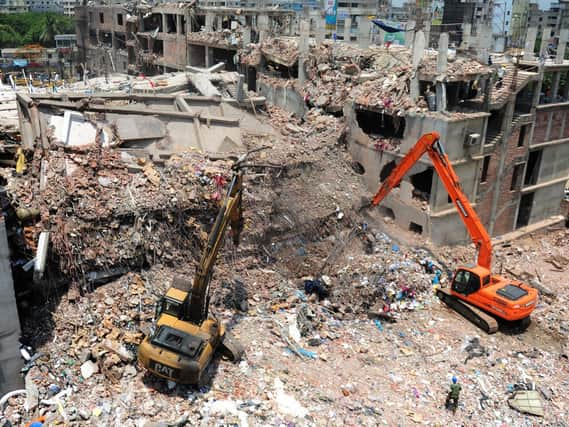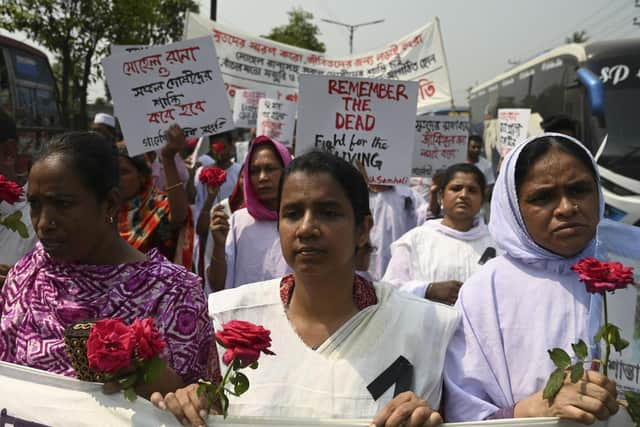The British fashion industry could face a Rana Plaza tragedy, says Preston lecturer


Dr Amy Benstead, a lecturer in fashion management at The University of Manchester, is warning against human exploitation in UK clothing factories.
Many online retailers now produce their clothes in Leicester instead of Asia - but Amy says a large migrant workforce is not being paid minimum wage in Britain and that working conditions appear dangerous.
Advertisement
Hide AdAdvertisement
Hide AdThe modern slavery researcher said: “I've seen high standards in factories abroad but some in the UK look very old and decrepit. When you see some of these factories, we could potentially have a Rana Plaza tragedy in the UK."


The Rana Plaza building in Bangladesh collapsed and killed 1,135 people in 2013 due to shoddy construction - it was the country's worst industrial disaster. It housed five garment factories supplying global companies, including Primark.
More than 50 brands came together for a legally binding building safety agreement backed by international trade union IndustriALL and the Bangladeshi government.
Amy says companies must forecast trends when ordering clothes from East Asia to stop them from going out of fashion by the time they are shipped over.
Advertisement
Hide AdAdvertisement
Hide Ad"Many companies are trying to create interventions but it's a complex issue and needs Governmental legislation to tackle criminal activity,” Amy said.


"There are lots of units in Leicester and subcontracting is rife everywhere, so there is a real lack of visibility. How do you regulate it?
"I don't think consumers are as aware of human exploitation as they are of the environmental side. And it's the people who suffer.”
The Modern Slavery Act forces businesses making more than £36m. in profit to explain on their websites how they are helping to eradicate exploitation.
Advertisement
Hide AdAdvertisement
Hide Ad"People should be more inquisitive about who's making their clothes. When you hear of workforce exploitation, the victims tend to be Asian or Eastern European. Often people are promised a better life in the UK,” Amy said.
"There's also an aging British workforce and young people don't necessarily want to work in factories, so we rely on migrants. Apprenticeships need more promotion. We need to show that factory work is a good, skilled job.”